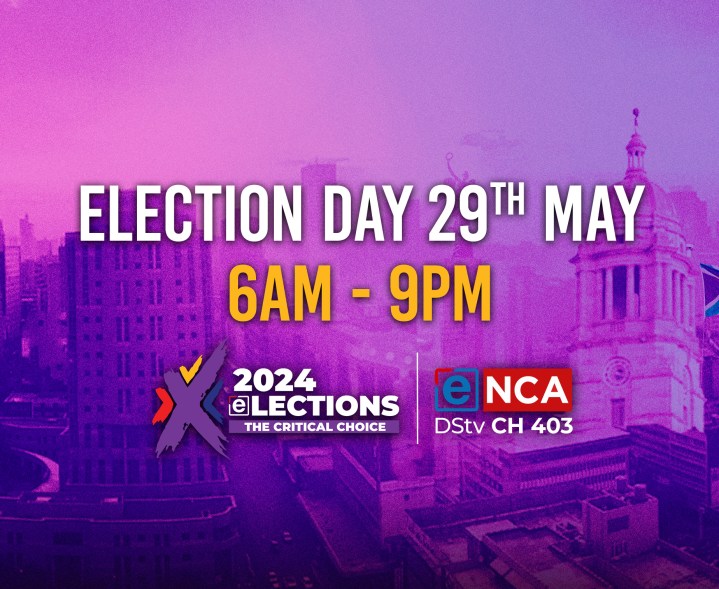In the early 1980s I attended a liquor board hearing at which a number of licence applications were presented and interrogated. I was very young, pretty much fresh out of university, and my interest in liquor was limited to the fine wine market. I thought licensing was just another way that the authorities made their presence felt, a bit like parents who say to their teenage children, “don’t be late” – just to remind them of who is really in charge.
In those days the members of the liquor board seemed to have a very clear idea of their brief. They appeared to my youthful eye to be steeped in the law, and adept at sniffing out the white lies and half-truths which peppered many of the applications. One episode firmly fixed in my memory relates to an application for what used to be called a “Wine & Malt Licence.” This was the simplest form of on-consumption authorisation, and therefore the one most easily granted. Licensees were not permitted to offer spirits to their patrons and liquor could only be supplied if a meal was ordered. In other words, it existed so that diners could have beer or wine with their food. To my mind, this meant there was little or no increased risk of drunkenness and the board would simply rubber-stamp the application.
The would-be licensee was required to attend the hearing to answer questions which might be put to them by board members. As it happened, one of them did: he looked carefully at the plans of the proposed restaurant, which included a drawing of the number of covers to be accommodated, and asked the applicant: “I see that your drawing shows a seating configuration of 96 places, is that correct?” When this was confirmed, the next question was, “I see that the female toilets only show two stalls, is that correct?” This too was confirmed – at which point the Board refused to issue the licence. Somewhere in the Act (or the regulations) there was a specification of a stall for every 25 or 30 female patrons. One of the members of the board had been examining the designer’s room layout and quietly adding up the number of chairs around the tables to make sure the toilet facilities were adequate.
At the time I recall thinking that this was red tape for the sake of it. As long as the liquor board has the right to refuse a licence because of structural rather than health and safety reasons, I muttered to myself, we’ll get corporate restaurants built around form rather than content. Nowadays however, I’m less certain of this: despite a massive increase in the red tape associated with liquor licensing there seems to be little if any regulation around the basic comfort of patrons in restaurants – and we still have (mainly) pedestrian dining establishments. Those in shopping centres don’t have toilets at all (you have to leave the establishment and wander around to find the nearest facilities); others, such as the one I went to with my elderly and not hugely mobile mother-in-law a few weeks back, had a single loo (for more than 80 covers) inaccessibly positioned up a creaky staircase.
This set me thinking about the role of red tape, especially in South Africa, a country where the economy is in tatters and formal business suffocates under the burden of bureaucracy. Whereas – at least in the case of the 1980s licensing regulations – there was a public interest motivation which gave the Liquor Board a useful policing role, today the red tape seems to exist either as a tool for job creation, or to enable the incumbents to exercise a gate-keeping role.
At present, as one food importer explained to me recently, it isn’t possible to import cured meats through Johannesburg, but it is possible to do so through Cape Town. Both offices cannot be right: either the Port Health Authority in Johannesburg is being over-zealous in its application of the regulations, or Cape Town is being lax. I’m not a betting man but, in conjunction with information I have about changes in the procedures for issuing permits in Gauteng, my money is on Cape Town’s officials correctly reflecting the law.
The problem with most of this red tape is that on the surface it suggests a real effort at governance. It’s hard to argue against liquor licensing when the apparent motivation is “control of a potentially harmful substance”. It is pretty much received wisdom that the sale of liquor should be licensed – so much so that this is hardly ever queried, though it should be.
Just consider for a moment the regulatory environment (not simply in South Africa but throughout the Western First World) when it comes to licensed cabs. The theory was that controls were essential in the interests of taxi users – to ensure that competent drivers were behind the wheel, that the drivers knew the most direct route to a destination (and hence did not over-charge), that there was some recourse in the event of a dispute.
In reality most of these reasons have lapsed (if they were ever of importance in the first place.) SatNav enables freshly arrived immigrants to navigate the cities, minimising the potential for disputes around the routes. Licensed cab owners subcontract their vehicles to people who have no particular aptitude for the job. Since taxi licences in a country like France cost upwards of R2-million per vehicle (and are issued on a restrictive basis to ensure that demand for the service exceeds supply); the whole arrangement has shifted from protection of passengers to protection of licence owners (much to the chagrin of the latter). Enter Uber – and the pendulum swings back in favour of the users. Suddenly it is clear that the well-intentioned red tape served the interests of everyone except the nominal beneficiaries.
I’ve struggled to understand how liquor licensing in South Africa protects the population in any way. We know there are more unlicensed outlets than licensed ones, that it is possible to buy alcohol at all hours and pretty much everywhere except the predominantly white middle-class suburbs where commercial real estate is 80 percent owned by listed property companies. So it isn’t easy to get a bottle of Scotch for home consumption after 22:00 in Sandhurst or Bedfordview (though no doubt there are nightclub owners willing to take the risk if you’re willing to pay the on-consumption price) but it would take you less than 10 minutes to secure something decent in Dube or Alex.
Whatever makes alcohol “dangerous” or “harmful” is a characteristic of the beverage, wherever the point of sale. It’s no different from a kitchen knife or a motorcar. The intrinsic feature of all these products is their potential to cause harm if incorrectly used, rather than the product itself. Nor does the argument that licensing regulations serve to protect minors hold any value. The sale of cigarettes is not subject to the same licensing restrictions. The onus is on the trader to comply with a legal obligation not to supply tobacco to anyone under 18 and there are sanctions in law – if the regulations are properly policed. Imposing a licensing requirement simply raises the stakes if a licensee is in breach: it has no effect at all if the sale is handled by an illegal trader.
Of course, those who think this is simply a matter of policing argue that if the wholesalers were properly controlled, it would be much more difficult for the shebeeners to get stocks. It’s a nice idea. Then the Makros and other re-distribution outlets would have to demand proof of a licence (or at least details of the purchaser) before supplying large quantities of liquor.
This smacks of the regulations in the black prohibition era before the Malan Commission Report. Then any transaction over 9 litres (in other words, a case of beer quarts) brought an obligation on the vendor to record the name and address details of the buyer. If anyone really thinks this arrangement will work, it’s worth remembering that even the infinitely more efficient police state of the 1960s finally acknowledged defeat and gave up on its attempt to maintain prohibition for the black population. A police force which cannot get taxi drivers to respect the rules of the road, and whose conviction rate for serious crimes is around 10 percent, has about the same prospects as Donald Trump in the 2017 Mr Universe competition.
These are but a few isolated examples of how apparently well-meaning bureaucracy serves the interests of the functionary (and therefore the party which appoints the officials) rather than the citizens of the country. As long as a post carries even the whiff of power to control, it is for sale to the highest bidder. If there’s money in state tenders, there’s competition not only between the tenderpreneurs but, more important, between candidates for the role of gate-keepers.
This malaise runs through our whole system, like a sepsis. It explains why people with no sense of civic responsibility want to be ANC ward councillors: they collect a fat salary for doing nothing and they get to have a say whenever there’s a contract to be concluded. It accounts for why municipalities as big as Johannesburg can only afford 12 traffic light technicians to maintain and repair over 2,100 traffic lights: the money is all spent on the white-collar, high-paying office jobs, and are not linked to real performance criteria. It was only a few years ago that striking municipal workers carried posters saying that while they were seeking R5k monthly, their bosses in Braamfontein were banking R500k annually. And, possibly worst of all, it contaminates the police service because lowly paid and risky as the work is, it comes with “benefits”.
We all know that it’s the pointless red tape that prevents our economy from taking off. Eliminate the worst of it and the boom will follow: employment will rise, tax revenues will increase, the need for the fiscus to fund grants will decrease and the national confidence index will catapult out of the doldrums.
Sadly, we also know that if the ANC hasn’t the political will to rid itself of Zuma, it’s hardly going to ditch the gate-keeping that comes with red tape. It’s the only strategy left in its pretty much empty treasure chest to maintain the continued support of the “faithful”. What this means though is that, whether we like it or not, we’re paying to keep the ANC in power. It’s a scheme Machiavelli would have admired. DM













